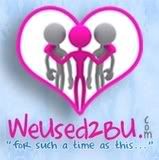Monday, June 13
 *Hope you all don't mind a rerun.*
*Hope you all don't mind a rerun.*I received a message the other day to expect a houseguest, a special friend coming for a visit, someone with deep needs. Since I love giving and love my friend, I was excited at the prospect of helping out in any way I could.
So, I did what every woman would do, I started cleaning the house…
Knock, knock, knock! Yikes! I’m not ready. However, I opened the door anticipating my friend but found a dirty beggar asking for a handout. Sorry, I said. I’m busy. Try next door.
…then I started preparing special food…
Knock, knock, knock! Aha! Must be my friend! Opening the door, this time I found a member from church collecting canned goods for the hungry. Sorry, I said. I’m busy. Try next door.
…then I put out the good towels and tablecloth…
Knock, knock, knock! Now what? Irritated, I flung open the door and found a neighbor’s child collecting clothes for homeless children. Sorry, I said. I’m busy. Try next door.
After everything was finished, I was pooped so I sat down to rest. Looking at my watch, I began to wonder what happened to my friend who was in such need. Doesn’t she know I’m waiting here to help her?
No more interruptions. No more knocking. As I decided to just sit there and wait, the Lord began to whisper to my heart…
“I knocked on your door three times today but you were too busy to let Me in. I am your Friend. I said I would come to visit because I had needs. I sent you the needs but you didn’t accept them as from Me. You received Me not. If you had responded to what I sent, you would have enjoyed sharing a precious fellowship with My people and with Me.”
Hanging my head in humiliation, I listened as He continued…
“Didn’t I tell you that when you did something for one of the least of these, you were doing it to Me? Will you turn Me away again next time?”
If He knocks upon your door today, will you open up to welcome Him as your honored houseguest? How will He appear, as the dirty beggar, the church member, the child? Or maybe as the person sitting in the back church pew crying, the young father with small children and food stamps, the neighbor down the street dying of AIDS, the single mother working two jobs to feed her children?
Who will you welcome? Whose needs will you meet?
“Behold, I stand at the door and knock. If anyohttp://www.blogger.com/img/blank.gifne hears My voice and opens the door, I will come in to him and dine with him, and he with Me.” (Rev. 3:20 NKJV)

This is part of Peter Pollock's One Word at a Time Blog Carnival. Click to check out the other entries on the topic of home.







































